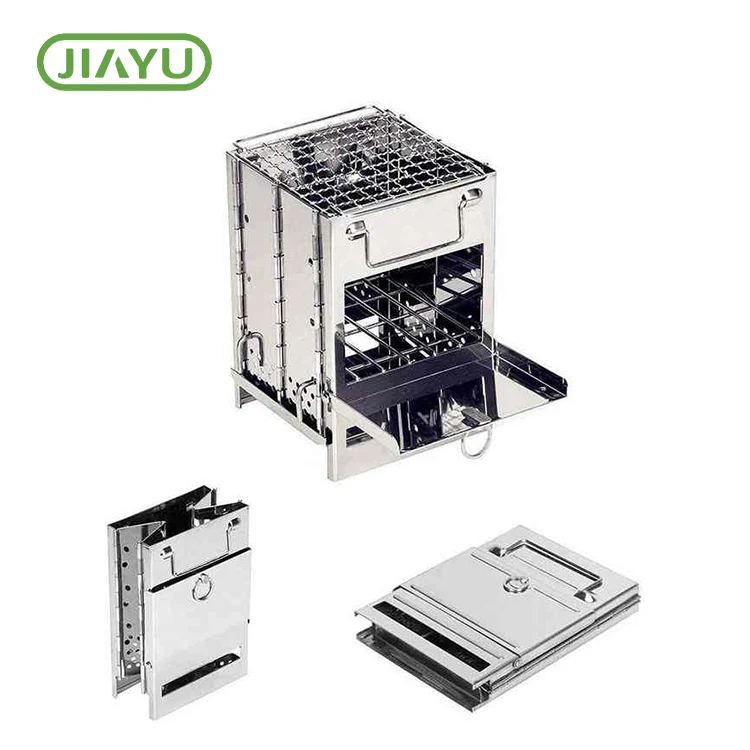What Makes a Camping Cooker the Ideal Outdoor Cooking Companion for Modern Campers?
2025-11-11
A camping cooker is a compact and efficient cooking device designed specifically for outdoor environments such as campsites, hiking trails, and picnics. Unlike traditional home stoves, camping cookers are portable, lightweight, and built to withstand rugged outdoor conditions. They are powered by various energy sources such as gas, propane, butane, or even solar energy, allowing users to prepare hot meals anywhere in nature.
In today’s fast-paced lifestyle, outdoor activities are not just leisure pursuits—they represent a reconnection with nature and simplicity. The camping cooker plays a vital role in this experience by offering convenience, safety, and versatility. Whether boiling water for coffee, frying eggs at sunrise, or cooking a hearty dinner under the stars, it ensures that outdoor enthusiasts can enjoy nutritious meals wherever they go.
Key Product Parameters of a Standard Camping Cooker:
| Parameter | Specification |
|---|---|
| Material | Stainless Steel / Aluminum Alloy / Iron |
| Fuel Type | Butane, Propane, Dual Fuel, or Electric |
| Ignition Type | Piezoelectric Automatic Ignition |
| Heat Output | 2,000 – 10,000 BTU (varies by model) |
| Weight | 0.8 – 3.5 kg |
| Cooking Capacity | Suitable for 1–6 people |
| Size | Compact Foldable Design (20–40 cm width) |
| Safety Features | Pressure Control Valve, Flame Failure Device |
| Accessories | Grill Plate, Pan Support, Carry Case |
This combination of practicality and durability is what has made the camping cooker a core item in every camper’s kit. It transforms the outdoor cooking process into something effortless and enjoyable.
Why Is a Camping Cooker the Best Choice for Outdoor Enthusiasts?
The growing demand for outdoor recreation has pushed manufacturers to innovate and create more efficient, eco-friendly, and compact cookers. But why is the camping cooker so crucial for outdoor adventures?
(1) Portability and Compact Design
Camping cookers are designed with portability in mind. Many models feature foldable legs, detachable burners, and lightweight materials that make transportation easy. Their compact structure allows users to pack them conveniently without adding bulk to backpacks or car trunks.
(2) Multi-Fuel Capability for Flexibility
Depending on the environment and fuel availability, campers can choose from butane, propane, or dual-fuel models. This flexibility ensures reliable cooking even in remote locations where one fuel type may be scarce.
(3) Efficient Heat Control
A high-quality camping cooker provides steady and adjustable heat output. Precise flame control helps conserve fuel while ensuring food is evenly cooked—whether simmering soup or grilling meat.
(4) Safety and Durability
Camping cookers are equipped with multiple safety mechanisms. These include pressure regulators to prevent overheating, flame failure devices to stop gas leaks, and heat-resistant materials for longer product life.
(5) Environmental Friendliness
Modern camping cookers are designed to minimize carbon emissions and fuel waste. Many new models are compatible with reusable gas canisters and eco-friendly fuel types, aligning with global sustainability goals.
In short, a camping cooker is not just about convenience—it’s about independence, safety, and environmental responsibility during every outdoor journey.
How Does a Camping Cooker Enhance the Outdoor Cooking Experience?
The “how” of the camping cooker lies in its ability to transform basic ingredients into gourmet outdoor meals. Unlike simple fire pits, which require effort, skill, and patience, camping cookers offer quick ignition, stable heat, and precise flame control.
(1) Rapid Ignition and Flame Stability
Modern cookers use piezoelectric ignition systems that generate sparks with a single press, eliminating the need for lighters or matches. Once ignited, the flame remains stable even in windy conditions due to built-in windshields.
(2) Efficient Cooking Performance
The high BTU output allows food to be cooked faster. Some advanced models can boil one liter of water in under three minutes—an essential feature during cold weather or high-altitude camping.
(3) Adaptability for Various Cuisines
Camping cookers can accommodate multiple cooking styles: grilling, boiling, frying, steaming, and even baking with the right attachments. They turn outdoor mealtime into a culinary experience rather than a survival necessity.
(4) Easy Maintenance and Cleaning
Removable burners, detachable pans, and stainless steel surfaces make cleaning simple after use. Some models even include non-stick coatings that prevent food residue buildup.
(5) Ideal for Group and Solo Use
Whether it’s a solo backpacker preparing a quick cup of noodles or a family cooking breakfast for six, there’s a camping cooker designed for every need. Multi-burner models allow simultaneous cooking, making them suitable for group adventures.
(6) Safe and Controlled Cooking
Unlike open fires that pose risks of uncontrolled flames, cookers provide regulated heating and flame control. Built-in protection systems prevent overheating or gas leakage, ensuring safe operation in any setting.
The camping cooker enhances not only convenience but also the overall outdoor lifestyle, turning ordinary trips into memorable experiences filled with flavor and comfort.
What Are the Future Trends and Common Questions About Camping Cookers?
As the outdoor industry continues to evolve, camping cookers are undergoing significant innovation. Manufacturers are combining technology, efficiency, and sustainability to meet the growing demands of modern travelers.
(1) Integration of Smart Features
Future camping cookers are expected to include smart sensors for automatic heat control, digital temperature displays, and connectivity features that monitor fuel levels. These advancements make outdoor cooking safer and more efficient.
(2) Renewable and Eco-Friendly Energy Sources
With global attention turning toward sustainability, solar-powered and biomass cookers are becoming popular. These devices use renewable energy and produce minimal waste, reducing the environmental footprint of outdoor activities.
(3) Compact and Modular Design Innovations
Design trends are leaning toward ultra-light and modular systems that allow users to customize configurations depending on cooking needs. Foldable cookers that fit into small backpacks are already in high demand.
(4) Durability and Material Evolution
Future models will likely employ corrosion-resistant alloys and heat-dispersing materials to ensure longevity, especially under extreme weather conditions.
(5) Market Expansion and Lifestyle Integration
The camping cooker is no longer limited to campers—it’s becoming a favorite for home emergency kits, food trucks, and backyard barbecues, bridging the gap between outdoor and indoor lifestyles.
Frequently Asked Questions (FAQ)
Q1: What type of fuel is most suitable for a camping cooker?
A1: The ideal fuel type depends on location and weather conditions. Butane is lightweight and efficient for mild climates, while propane performs better in colder environments. Dual-fuel models offer flexibility, ensuring consistent performance across different terrains and temperatures.
Q2: How can I maintain a camping cooker for long-term use?
A2: After each use, clean all detachable parts and wipe down the surface with a damp cloth. Check the gas regulator and hose regularly for leaks. Store the cooker in a dry place and use protective cases to prevent dust or rust. Periodic maintenance ensures stable performance and extends product lifespan.
The Future of Outdoor Cooking with JIAYU Camping Cookers
The camping cooker has revolutionized outdoor dining by combining efficiency, safety, and sustainability. As technology and outdoor culture evolve, the demand for advanced, eco-friendly, and versatile cooking solutions continues to grow. Whether for weekend getaways, professional expeditions, or family picnics, the camping cooker is redefining how people experience nature.
JIAYU, a trusted brand in outdoor equipment manufacturing, continues to lead this evolution. With a focus on durability, innovation, and user-centered design, JIAYU camping cookers deliver reliability and comfort wherever your adventure takes you.
For detailed product specifications, wholesale inquiries, or customized solutions, contact us today to explore how JIAYU can support your outdoor cooking needs.



